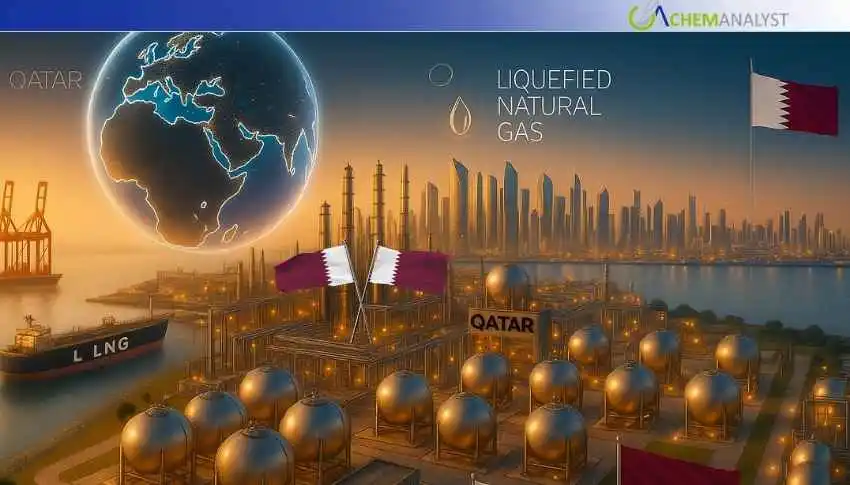Welcome To ChemAnalyst

Qatar’s North Field expansion boosts LNG capacity, strengthens global energy security, secures key partnerships, and positions the nation as a sustainable energy leader.
In a decisive move to consolidate its position as a leading global clean energy supplier and bolster global energy security, the State of Qatar is set to begin liquefied natural gas (LNG) exports from the first phase of the North Field East (NFE) expansion project by mid-2026. Speaking at the Qatar Economic Forum, Minister of State for Energy Affairs and QatarEnergy President and CEO, HE Eng. Saad bin Sherida Al Kaabi, confirmed that the project remains on schedule, with first shipments expected in mid-2026.
The NFE expansion — the largest of its kind globally — is central to Qatar’s ambitious plan to almost double its LNG production. Current output of 77 million tonnes per year will rise to 110 million tonnes by 2026 and reach 126 million tonnes in 2027 with the completion of the North Field South phase. A further increase to 142 million tonnes annually is planned by 2030 upon the completion of the North Field West project, which is currently in the engineering design phase.
According to Qatar News Agency (QNA), the country’s LNG ventures will contribute around 40% of the total new global LNG supply by 2029, reinforcing its role in driving economic growth and reshaping international energy markets. Yousef Mahmoud Al Neama, Chief Business Officer at QNB Group, emphasized the NFE as one of the region’s largest capital investments, involving the development of eight new LNG production trains across three phases. These investments will fuel economic expansion, strengthen refining and petrochemical operations, and support Qatar’s diversification goals.
GDP growth is forecasted to accelerate as the NFE phases become operational, with projections of 2.4% in 2025, 5.6% in 2026, and 7.9% in 2027. The Qatari banking sector is expected to benefit from increased liquidity, high asset quality, and sustained profitability.
In remarks to QNA, Dr. Omar Khlaif Gharaibeh of Al-Bayt University noted that this expansion represents one of the largest undertakings in gas industry history. He highlighted that Europe’s energy strategy is shifting toward reliable suppliers, with Qatar emerging as a preferred choice through long-term agreements with Germany, France, and the Netherlands. These partnerships provide stability to volatile markets, especially amid geopolitical uncertainty.
Economically, the expansion could help moderate global gas prices, potentially reducing them from current highs of over $30 per million thermal units to around $10-15 by decade’s end. Qatar is investing over $45 billion in infrastructure, LNG carriers, and port facilities, positioning itself as a “quiet power” in the energy transition.
The three-phase expansion includes four mega production lines in Phase One (32 million tonnes/year), two lines in Phase Two (16 million tonnes/year), and an additional two lines in Phase Three (16 million tonnes/year). The West Field phase will begin construction by 2027. Total investment for the North Field expansion stands at approximately $82.5 billion, with QatarEnergy covering $59 billion. Global energy majors, including ExxonMobil, TotalEnergies, Shell, Eni, ConocoPhillips, and Sinopec, are active partners.
Qatar’s long-term LNG supply agreements with key European and Asian nations — including Germany, France, the Netherlands, China, and India — are enhancing energy security worldwide. The adoption of low-emission liquefaction technologies ensures Qatari LNG remains among the cleanest available, aligning with Qatar National Vision 2030’s goals for sustainable growth, economic diversification, and global energy leadership.
We use cookies to deliver the best possible experience on our website. To learn more, visit our Privacy Policy. By continuing to use this site or by closing this box, you consent to our use of cookies. More info.
